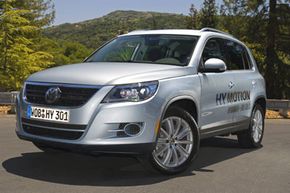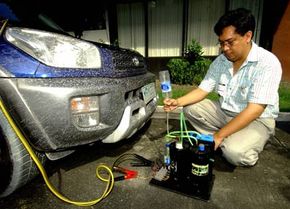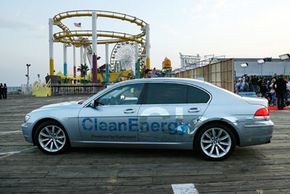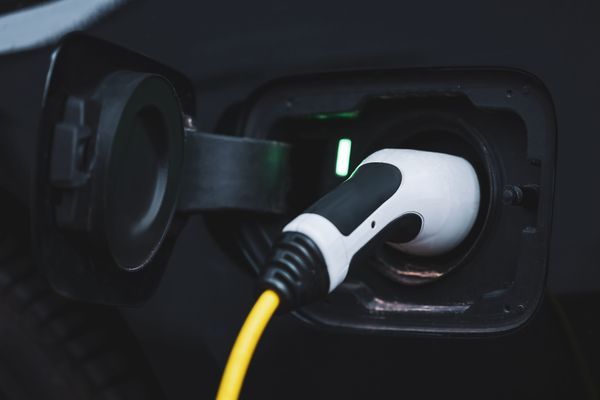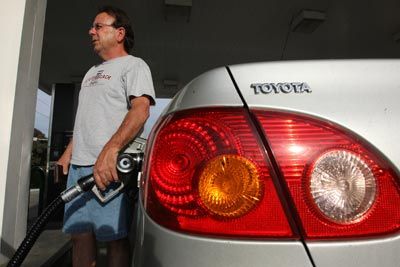If you could run your car on a fuel that burned so cleanly that itsonly emissions were water vapor, you'd do it in a heartbeat, right?
It turns out that you can. Automakers are developing technology that would allow us to use hydrogen instead of gasoline to fuel our cars. Hydrogen is readily available and has fewer environmental drawbacks than petroleum-based fuels like gasoline. There are two ways hydrogen-as-car-fuel will likely be developed — hydrogen-on-demand for internal combustion engine applications and for fuel cell vehicles.
Advertisement
Alternative Fuel Vehicle Image Gallery
Because of the promise of these two clean energy technologies, there are a number of scams trying to capitalize on the demand. In this article, we're going to look at fuel cell vehicles and hydrogen-powered internal combustion vehicles, and we'll even take a look at some recent advertisements that claim with a simple conversion kit, you can run your car on water.
All hydrogen technologies work on the same principle as gasoline to power cars. Fuels, like gasoline and hydrogen, contain chemical energy. That energy can be released by creating a chemical reaction. In the case of a gasoline or hydrogen-powered engine, that chemical reaction is combustion, or burning the fuel. In a fuel cell vehicle, the hydrogen fuel is combined with oxygen. While the combustion in a hydrogen- or gasoline-powered engine is converted into mechanical energy, in a fuel cell vehicle, the chemical energy from the hydrogen and oxygen is converted into electrical energy. Of course, this is a very simplified version of what's actually going on under the hood. If you're not quite sure about the differences between internal combustion engines and fuel cells, it might be a good idea for you to check out How Car Engines Work and How Fuel Cells Work.
Keep reading to find out if you really can power your car with water.
Advertisement
